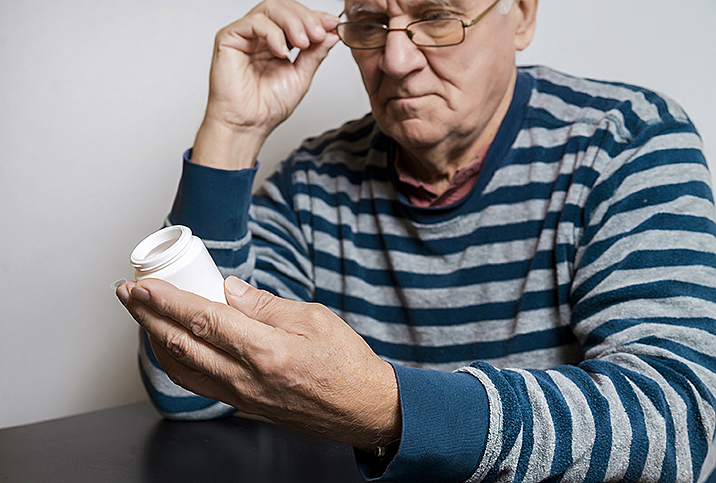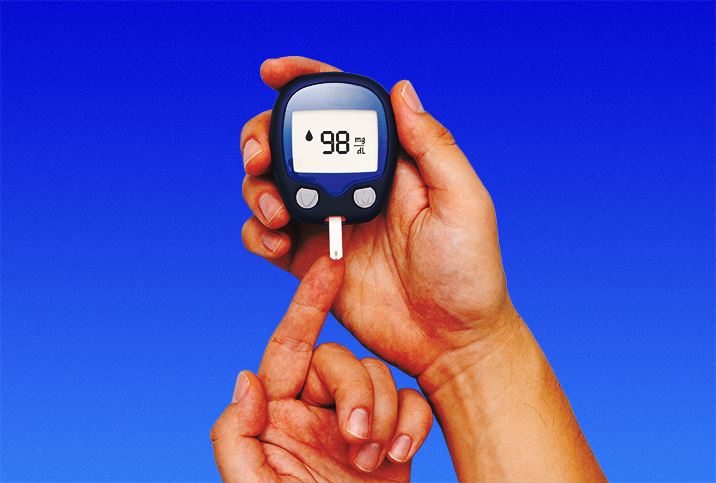Diabetes and Erectile Dysfunction: Myths & Misconceptions

Diabetes and erectile dysfunction (ED) are linked due to various aspects of both conditions. That said, many myths and misconceptions surround both issues and their ties. Some of that misinformation can be harmful and lead to an unfair stigma for two medical conditions that affect millions of people in the United States alone.
Read on to discover several of the most common diabetes and ED myths, and the facts you need to debunk them.
Myth: ED is not a complication of diabetes.
Reality: Erectile dysfunction is common in men who have diabetes. In the past, doctors believed that declining sexual function was just an inevitable consequence of getting older, but it's now known that ED is linked to diabetes. Studies of ED indicate that its prevalence in men with diabetes ranges from 35 to 75 percent, versus 26 percent in the rest of the male population. The onset of ED also happens 10 to 15 years earlier in men with diabetes than it does in those without diabetes.
Giddy urologist Dr. Edwin Morales explains the connection between diabetes and erectile dysfunction in the ED Guide video series. Click here to watch the video.
Myth: Diabetes does not impact sexual function.
Reality: Diabetes increases the risk of sexual dysfunction. There are a number of reasons why people with diabetes suffer from sexual dysfunction more often than those who don't have diabetes. The time and energy men and women spend managing diabetes—wearing insulin pumps and so forth—can take a toll on mental health, which can, in turn, lead to decreased sex drive or the use of a prescription drug that negatively affects sexual function.
Changes in the sex hormones testosterone or estrogen due to diabetes, menopause or other conditions can impact libido, vaginal lubrication and sexual arousal. Diabetes impacts blood flow, which could affect blood reaching the vagina or penis. In women, decreased blood flow could lead to vaginal dryness.
Myth: I can't manage my ED if I have diabetes.
Reality: Lifestyle changes can reduce the risk of ED. Lifestyle changes also aid in the treatment of diabetes, helping to reduce blood glucose and the risk of ED. Better glucose control has been shown to improve erections and reduce the risk of developing ED. It's all tied together.
The following lifestyle changes can help reduce the chances a person with diabetes will develop ED, or may even improve erectile function for men who have ED:
- Quit smoking. Smoking increases your risk for ED by raising your blood pressure, which, over time, can damage small blood vessels in your penis.
- Reduce cholesterol in your diet. Men with high cholesterol have a greater risk of ED. Avoiding foods that are high in cholesterol can help reduce the risk.
- Lose weight. Exercise and dropping pounds are vital for overweight men with diabetes. This can help lower blood glucose levels and increase circulation, which can also help with ED. Weight loss has been proved by studies to be an effective means of restoring sexual function in men.
- Decrease stress. Diabetes can lead to depression, anxiety and other mental health issues, which can cause or worsen ED through stress.
Myth: Diabetes is not a serious disease.
Reality: Diabetes causes more deaths than HIV/AIDS and breast cancer combined. It can result in damage to many organ systems, such as the heart, kidneys and eyes, if it is not controlled. People with diabetes could go for years before they are diagnosed and may ignore or downplay their symptoms, which may include frequent urination, dehydration, extreme fatigue and blurry vision.
Myth: Home remedies—cinnamon, bitter melon, turmeric—can cure diabetes.
Reality: There is no cure for diabetes. While some foods and herbs improve a person's insulin sensitivity or resistance in type 2 diabetes, there is no magic herb, spice or food that can cure diabetes. Type 1 (insulin-dependent) diabetes is incurable, and type 2 diabetes, when detected very early, can be reversed with significant lifestyle changes such as losing weight. This type of remission needs constant attention for the rest of one's life.
If you suspect you may have diabetes or ED, it's important to see your physician as soon as you can. Don't let misinformation delay your diagnosis and treatment.


















